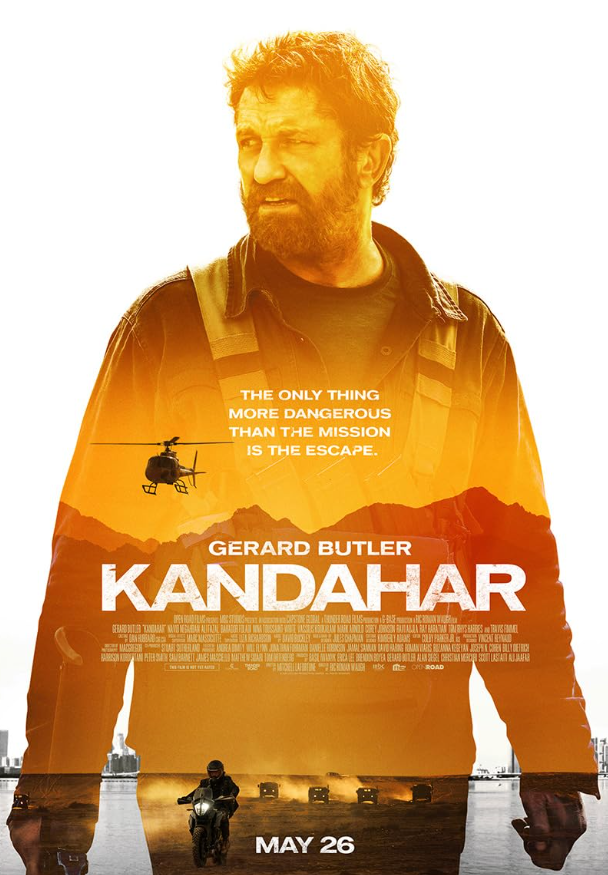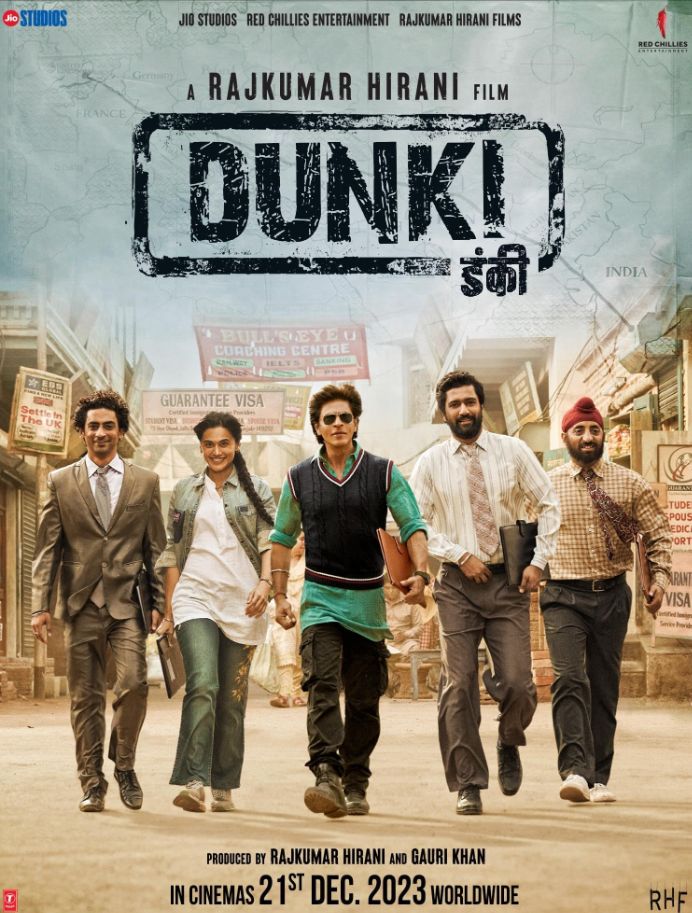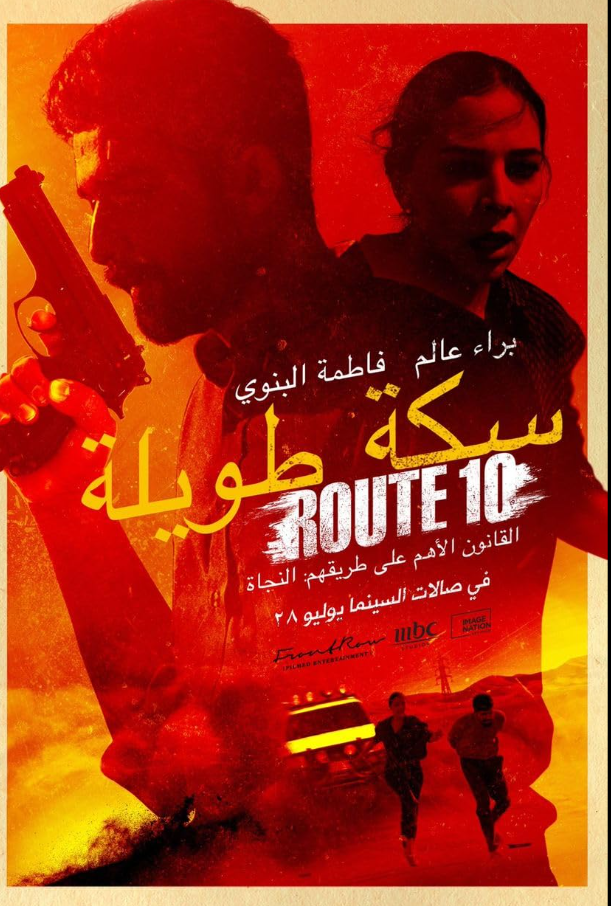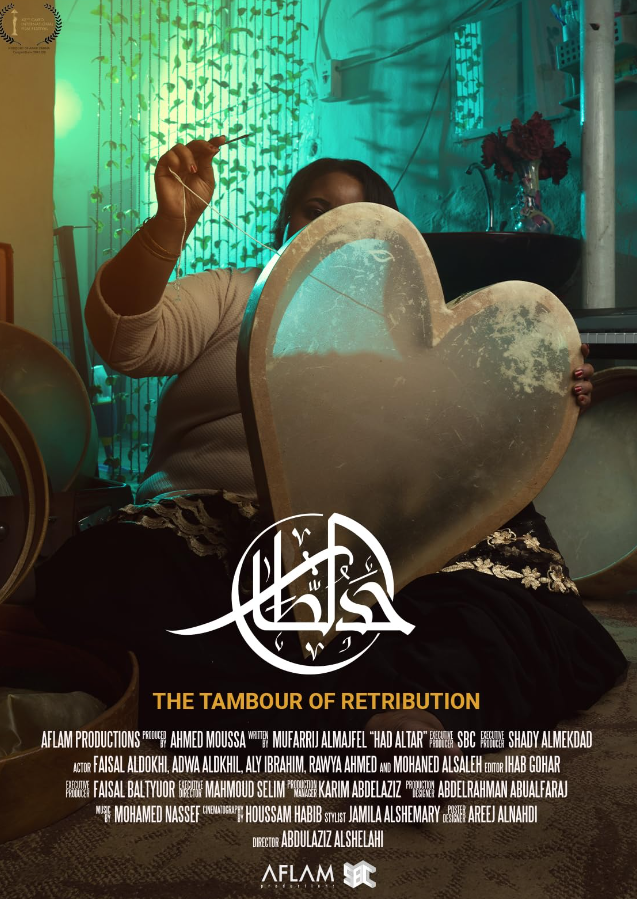Saudi Arabia as a cinematic destination: How modern films are showcasing the kingdom


Saudi Arabia, a land of stunning contrasts and rich cultural heritage, has recently emerged as a captivating backdrop for filmmakers around the globe.
From its vast deserts to its bustling cities, the country's diverse landscapes offer a visual feast that enhances the storytelling of every film shot here. Whether it's the rolling sand dunes of the Empty Quarter or the dramatic rock formations of AlUla, Saudi Arabia's natural beauty provides an awe-inspiring canvas for cinematic creations.
In recent years, more and more filmmakers have been drawn to Saudi Arabia's unique scenery, showcasing its picturesque vistas in a variety of genres.
This article delves into the mesmerizing locations featured in these films, revealing how Saudi Arabia's breathtaking settings elevate the visual narrative and draw audiences into the heart of its captivating allure.

This high-octane CIA spy thriller, directed by Ric Roman Waugh and starring Gerard Butler, dared to push boundaries, becoming the first major Hollywood production to film entirely in Saudi Arabia.
The desolate beauty of AlUla's canyons and the bustling port city of Jeddah served as a captivating counterpoint to the film's high-stakes tension.
Set against the dramatic story of a secret CIA operative trapped in Afghanistan, Kandahar made full use of Saudi Arabia's diverse and breathtaking scenery. AlUla's stark landscapes mirrored the protagonist's isolation, while Jeddah's vibrant energy underscored his yearning for escape.
This cinematic choice not only highlighted the country's beauty but also demonstrated its growing appeal as a location for international filmmaking.
The film's box office success, grossing US$9.4 million worldwide, further solidified Saudi Arabia's position as a rising star in the global film industry.

Directed by the acclaimed Rajkumar Hirani and starring Bollywood superstar Shah Rukh Khan, Dunki tackles the pressing issue of illegal immigration among Indians. This highly anticipated film takes a unique approach by utilizing various picturesque locations across Saudi Arabia, showcasing the country's diverse and stunning landscapes.
The film ventures beyond the usual shooting locations, venturing into the vibrant city of Jeddah, the forward-looking city of NEOM, and other notable spots like Tabuk. Jeddah's scenic coastline and ancient Islamic port add a captivating layer of authenticity to the film. The bustling port city becomes a character itself, reflecting the struggles and dreams of immigrants.
In contrast, the futuristic architecture of NEOM stands in stark contrast, highlighting Saudi Arabia's rapid development and innovative spirit.
This intricate blend of locations provides a visually striking backdrop that enhances the storytelling. Jeddah's historical context grounds the narrative in reality, while NEOM represents a potential future for the characters caught in the immigration web.
Dunki not only captivated audiences with its compelling narrative but also grossed over USD 50 million at the global box office. This success underscores Saudi Arabia's growing appeal as a prime location for international filmmakers.
By showcasing the country's diverse landscapes and blending historical charm with futuristic vision, "Dunki" promotes Saudi Arabia's cinematic potential on the world stage.

Route 10, directed by Lebanese-American filmmaker Omar Naim, features Fatima Al Banawi and Baraa Alam as siblings on a desert odyssey. Their unexpected road trip, triggered by a cancelled flight, takes them across the Saudi desert to their father's wedding in Abu Dhabi. The journey unveils both the breathtaking beauty and inherent dangers that lie within this vast landscape.
Filmed entirely in Saudi Arabia's Eastern Province, Route 10 showcases the region's awe-inspiring vastness and serene beauty.
The film highlights the majestic Empty Quarter, renowned as the Arabian peninsula's most stunning desert, and the world's longest straight road, which snakes through mesmerizing sand dunes and picturesque landscapes.
This captivating backdrop adds depth to the film's narrative, emphasizing the desert's majestic power and the subtle dangers that lurk beneath its surface.

Had Al-Tar, directed by Abdulaziz Al-Shalahi, is a captivating social drama set within the heart of Riyadh's Al-Oud District. The film stars Faisal Al-Dokhei as Dale, a swordsmith's son, who finds himself entangled in a forbidden love with Shamah, the daughter of a wedding singer.
Their blossoming romance confronts the harsh realities of social standing, painting a poignant portrait of love tested by societal constraints.
Filmed entirely within the historic Al-Oud District, Had Al-Tar masterfully leverages its setting to enrich the narrative's depth. The vibrant music market, a symbol of life and celebration, stands in stark contrast to the somber Oud Cemetery, representing mortality and consequence.
These powerful backdrops become vivid metaphors for the social divides the characters grapple with. Furthermore, the film beautifully captures the Al-Oud District's rich history and cultural significance, lending authenticity and a strong sense of place to the story.
Critically acclaimed, Had Al-Tar garnered awards at international film festivals and proudly represented Saudi Arabia at the Oscars.
The film's masterful use of location not only showcases the beauty and cultural depth of Riyadh but also underscores the social contradictions and challenges faced by the characters. This symbolic approach elevates the film, making it a significant contribution to the evolving landscape of Saudi cinema.
Norah is a captivating film set in the vibrant world of 1990s Saudi Arabia. It features Maria Bahraoui as the ambitious and artistic Norah, and Yaqoub Al-Farhan as Nader, a city teacher who shares her passion for self-expression.
The story unfolds as Norah, driven by a desire to explore her artistic talents despite societal limitations, encounters Nader, who believes in the transformative power of art.
Filmed amidst the ancient ruins of AlUla, Norah beautifully captures the city's essence. These historical landmarks not only add depth to the narrative but also showcase AlUla's cultural significance.
The film's screenplay garnered critical acclaim, winning the prestigious Light Award for Film Support from the Saudi Film Commission and Ministry of Culture in 2019. This recognition highlights the story's strength and the magnificence of its backdrop.
Norah has been a significant milestone for Saudi cinema, winning awards at the Red Sea Film Festival and participating in the esteemed 77th Cannes Film Festival.
These accolades, along with the screenplay's recognition, underscore the film's originality and the compelling beauty of AlUla. It also promotes Saudi Arabia as a vibrant and culturally rich filming destination.
ALSO READ: Trotting down under: The Fall Guy's guide to famous Australian landmarks